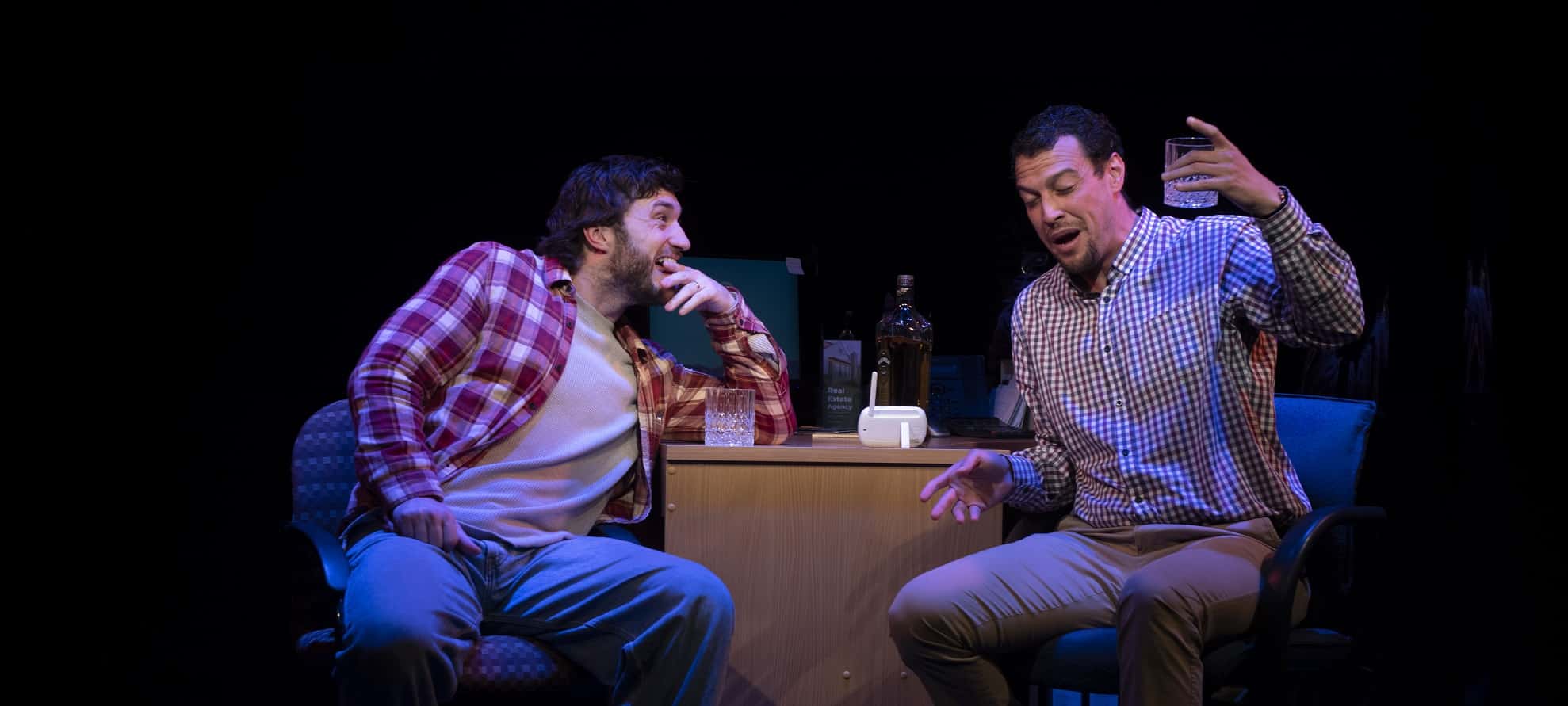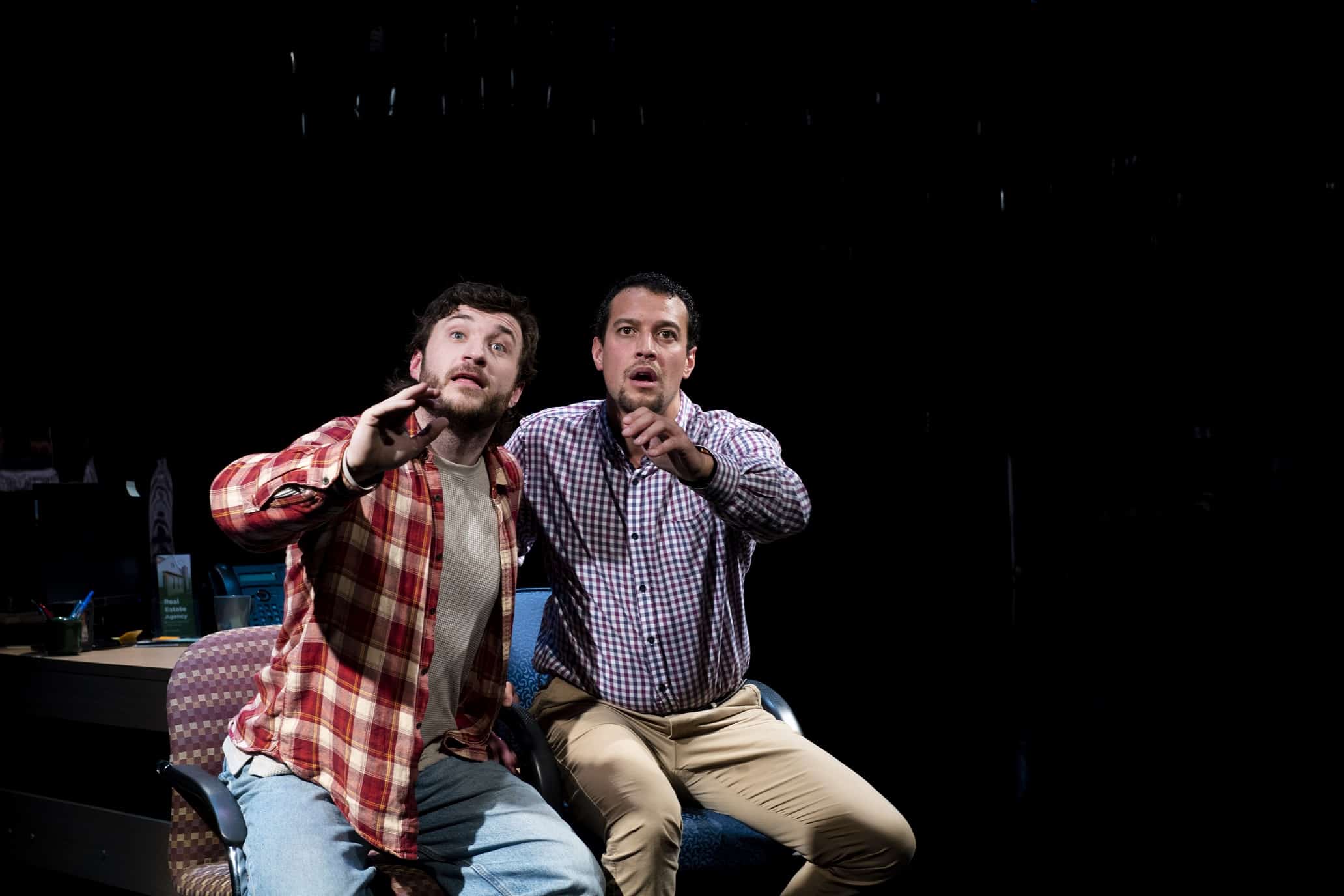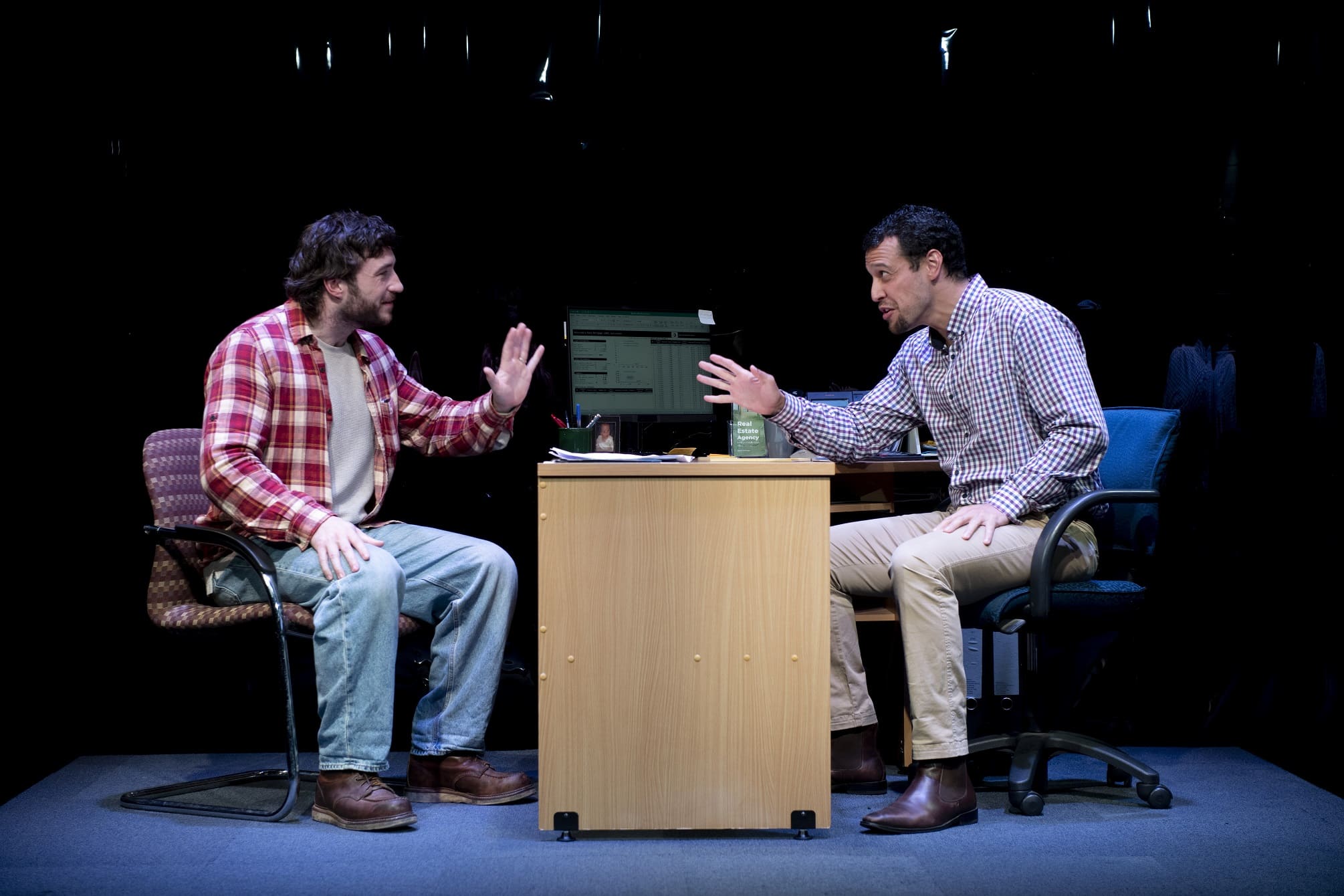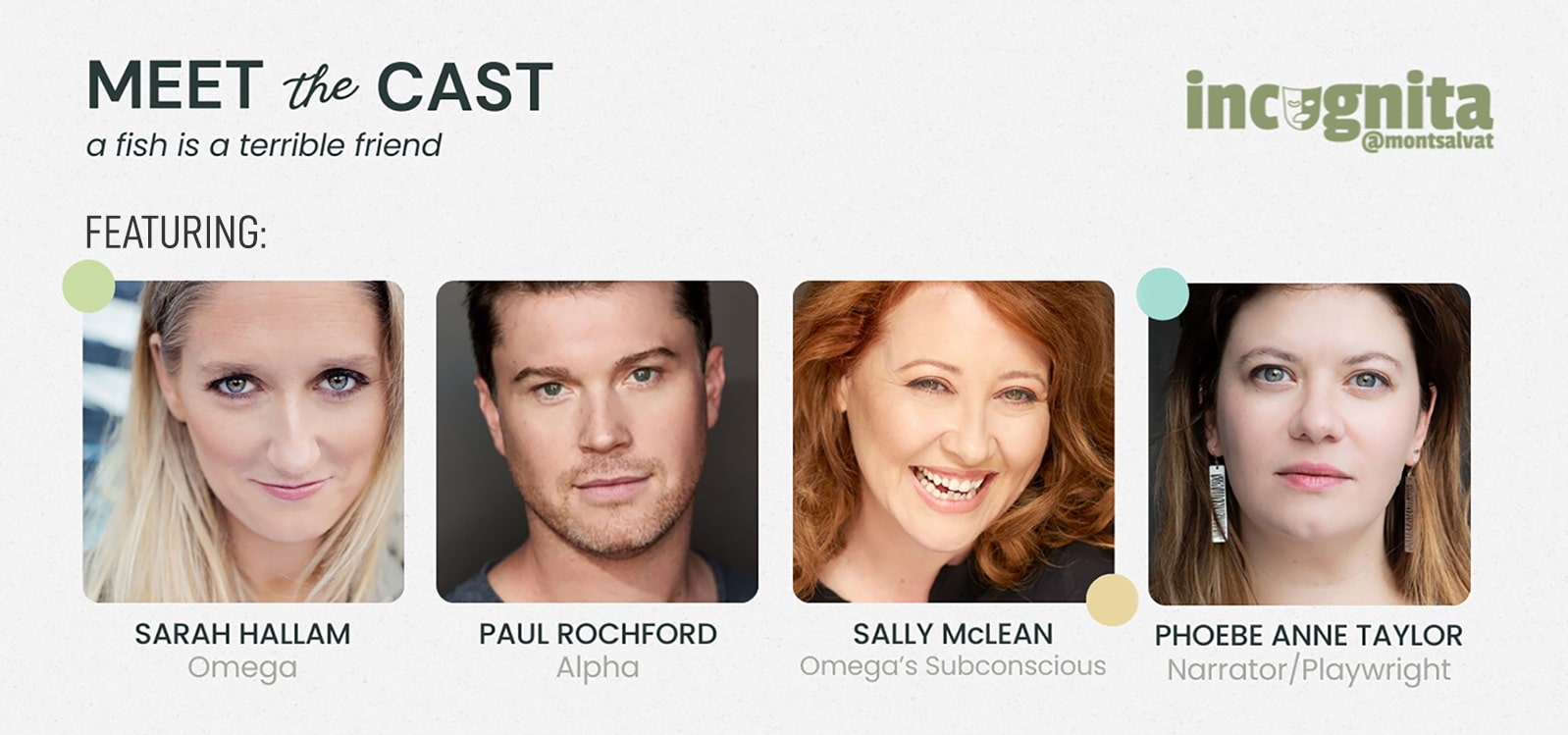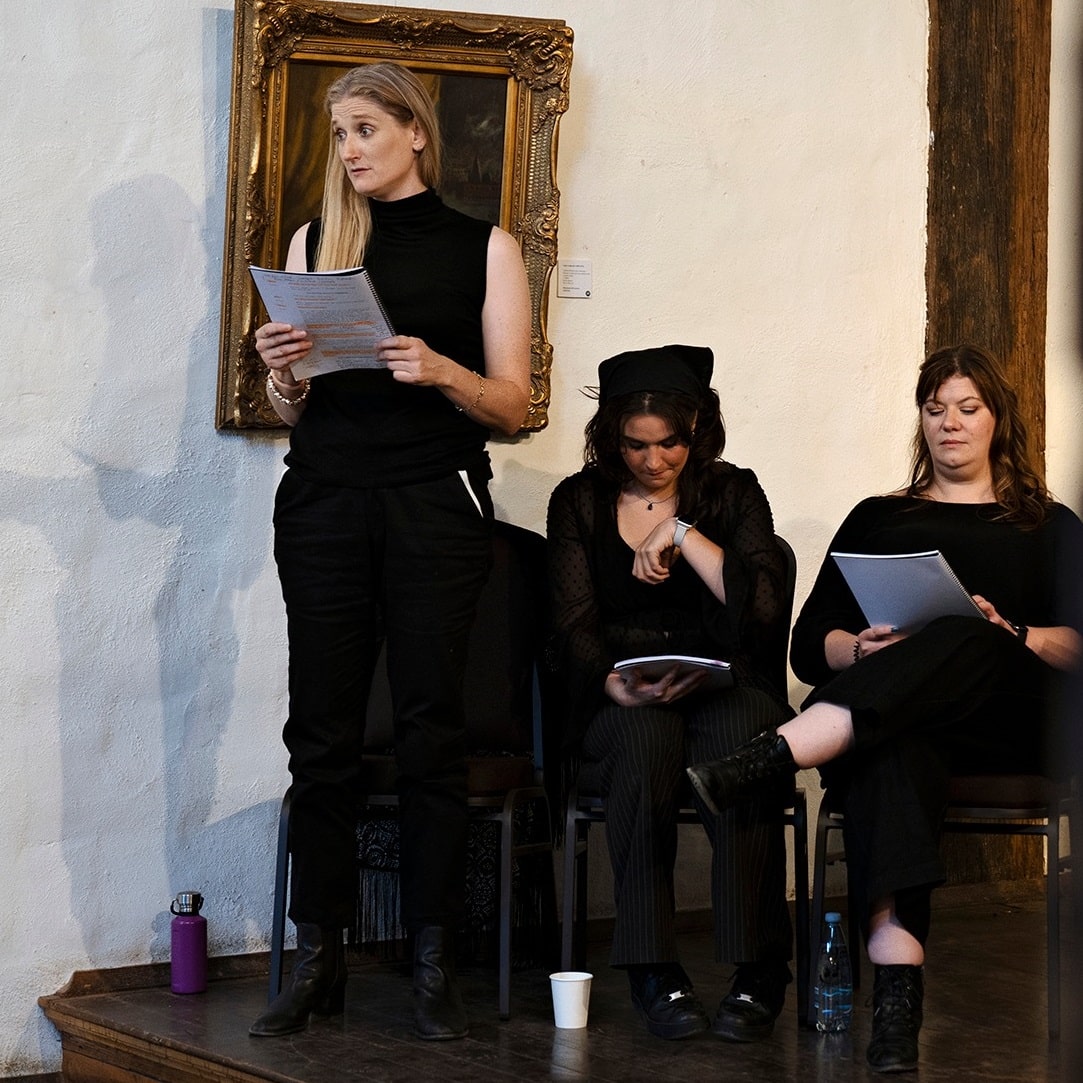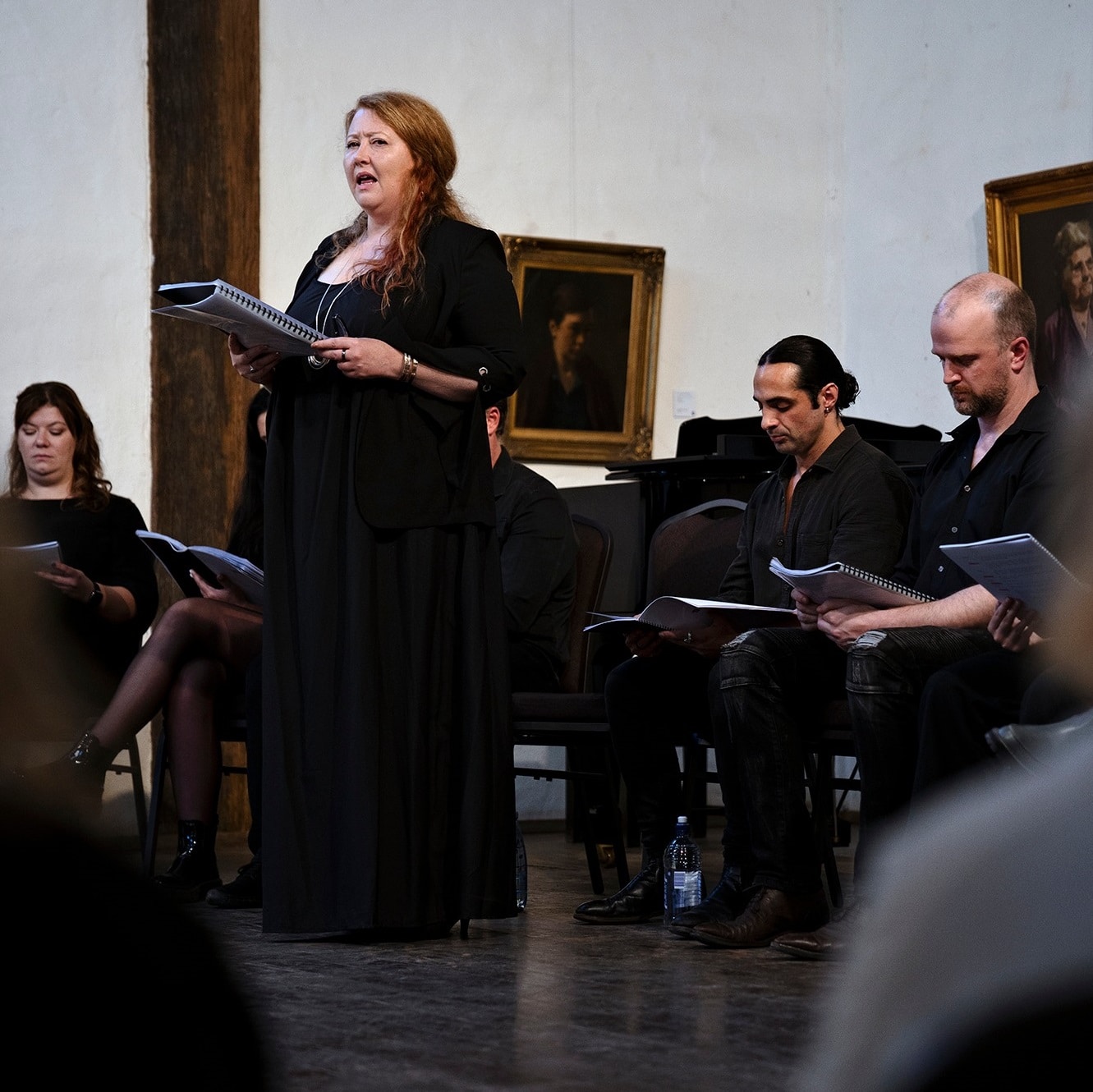With the title of “Rootless Cosmopolitans”, I half expected to turn up and see Carrie and the gals from “Sex and the City” sipping cocktails and comparing notes on the past week’s romantic adventures. Silly me. It refers to Stalin’s euphemistic pejorative for ‘Jew’. This was a play with far more to say on issues, such as terrorism, genocide, identity, war, and conflict.
Like the aforementioned television show however, despite its darker subject matter, Monstrous Productions, presenting Ron Elisha’s challenging play, manages to keep the laughs a plenty, with many a cultural joke that even Gentiles, like myself, easily relate to. Lured into a false sense of ‘lightness’ this makes the audio of the October 7, 2023 attacks when the characters are confronted with the news of the terrorism, hit extra hard. Taking both the atmosphere on stage and in the audience to a palpable knot in the throat.
Set in the offices of an internationally respected theatre company, Artistic Director Ira Brot, who like all of us in the arts, lives in fear of something he may say publicly via socials getting misunderstood and the catchword of the day “cancel culture” being firmly placed in his direction, navigates through an ever-changing world.
Where diversity and ticking boxes are placed ahead of vision, where Jewish people have been a persecuted minority, to on face value at least, overcoming adversity, to then be thrown back into depths of terror and racism. The weight of Ira’s people’s history, hanging forever over his past present, and future, is made even more apparent with the ghost of his mother, consistently in his ear.
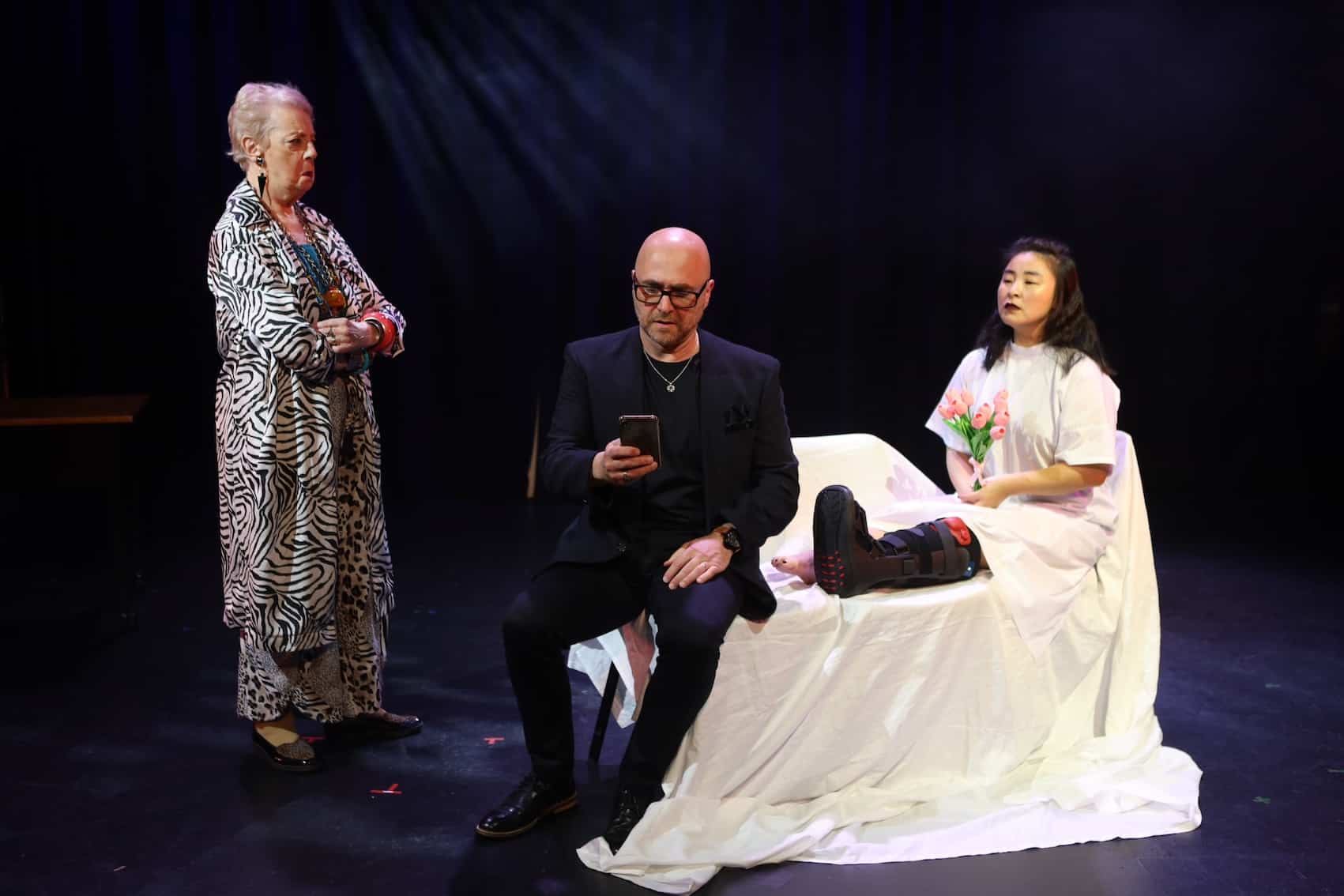
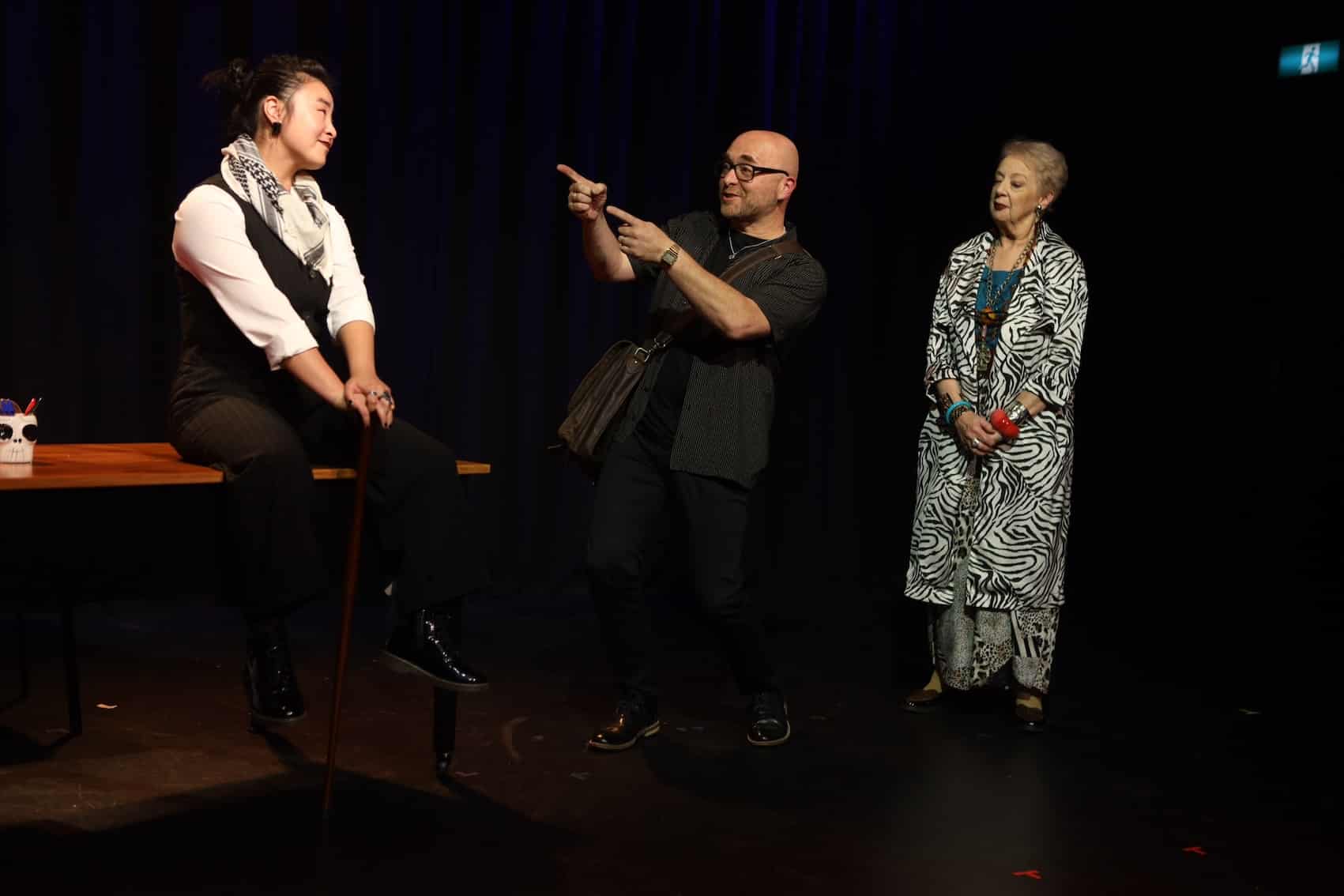
Despite taking a small, struggling theatre company to the international stage in 6 short years, the moment the board feels the “optics” of having a Jewish Artistic director at the helm is no longer good for business, Ira Brot is thrown into a world where he strains to find his place. All the while his marriage breaks down, his assistant director uses his proxy vote to shoo him out, and he questions his privilege.
Packed into 90 minutes, “Rootless Cosmopolitans” bounds out of the gate strong, quick with the laughs, and instantly grabs our attention with fantastic acting, most notably from Babs McMillan, who steals the show as the ghost of Ira’s ever-quipping-dead mother, and a razor-sharp script. Despite the strong start, around the middle the script and direction felt a little lost, perhaps this was a choice to shadow the emotions, Ira, anchoring the story with an even and sympathetic performance by Anton Berezin, is facing.
With great turns from Seon Williams as Ira’s assistant and then the Artistic Director of her own company, and Emily Joy playing both board member and Ira’s wife, the play finds its feet again and gallops towards the finish line.
What made this a good night at the theatre, was how given the subject matter and the world we live in, it never felt preachy. It posed many questions and didn’t always tell us the answers. Like all the characters, the audience is left questioning our own privilege, struggles, and curious as to what boxes we tick and should the optics’ change, as it did for Ira, where would we find our place in this constantly changing, ever-scrutinizing world.
Review 3.5 Pineapples


